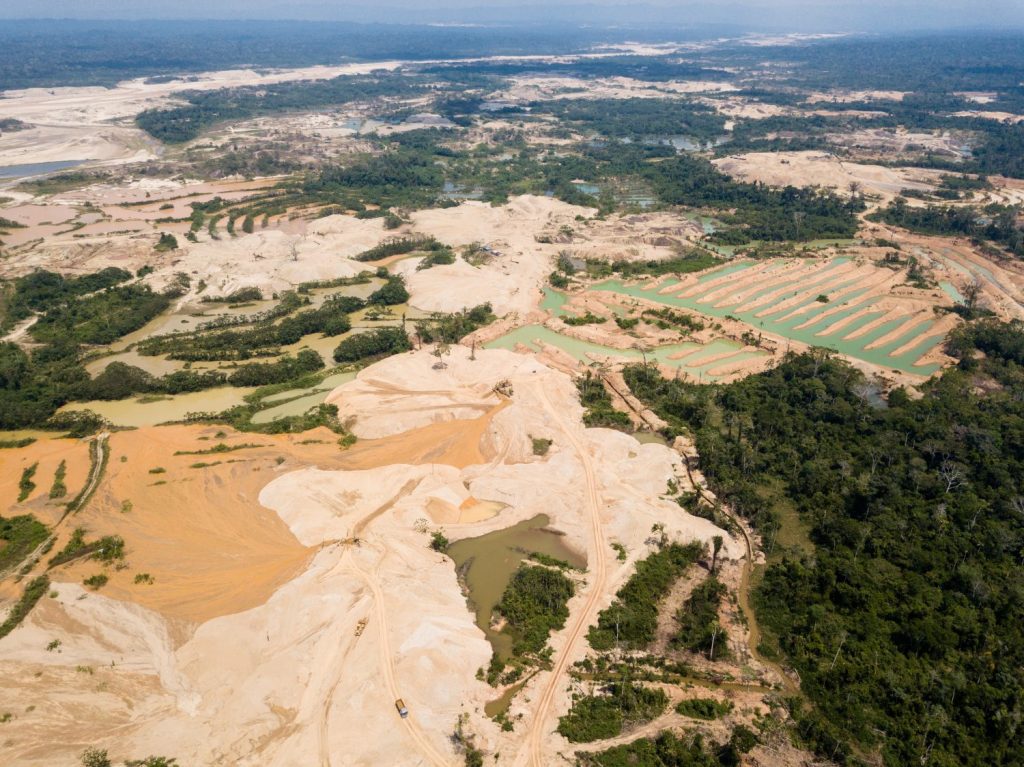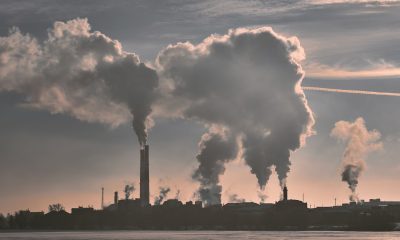Scientists examine how to prevent deforested land from being wasted
“A big piece of the puzzle is how much deforestation is for nothing."
Published
2 years ago onBy
Talker News
By Danny Halpin via SWNS
More than 90 percent of all deforestation in the tropics is driven directly or indirectly by agriculture, according to a new study.
However, researchers found that only half to two-thirds of the deforested land is then actively used for agricultural production.
The findings, published in the journal Science, show that the level of deforestation through agriculture is higher than the most cited figure over the past decade of 80 percent.
The study is the result of a collaboration of many of the world’s leading deforestation experts examining the complex relationships between deforestation and agriculture and how that impacts attempts to slow rainforest destruction.
“But what surprised us was that a comparatively smaller share of the deforestation – between 45 and 65 percent – results in the expansion of actual agricultural production on the deforested land.
“This finding is of profound importance for designing effective measures to reduce deforestation and promote sustainable rural development.”
That agriculture is the main driver of deforestation is not a new idea, but the new study offers greater clarity on how much land is actually converted.
Previous estimates varied between 4.3 to 9.6 million hectares per year between 2011 and 2015.
The new study has narrowed that down to between 6.4 and 8.8 million hectares per year.
Professor Patrick Meyfroidt of UC Louvain in Belgium explained the uncertainty in the numbers: “A big piece of the puzzle is how much deforestation is for nothing.
“While agriculture is the ultimate driver, forests and other ecosystems are often cleared for land speculation that never materialized, projects that were abandoned or ill-conceived, land that proved unsuitable for cultivation, as well as due to fires that spread into forests neighboring cleared areas.”
The study authors said that by highlighting the significance of deforestation drivers, the work can aid policymakers who want to protect the world’s rainforests.

Study lead author Florence Pendrill, a Ph.D. candidate at the Chalmers University of Technology in Sweden, said: “Our review makes clear that between 90 and 99 percent of all deforestation in the tropics is driven directly or indirectly by agriculture.
That could be EU legislators proposing due diligence for deforestation-free products, private sector initiatives for specific commodities or for rural development policy in producer countries.
Only a handful of commodities are responsible for the majority of deforestation that is linked to actively producing agricultural land, according to the study, half of which is linked to pasture, soy and palm oil alone.
But the study authors said that simply banning certain products linked to deforestation will not be enough.
Dr. Toby Gardner of the Stockholm Environment Institute said: “Sector-specific initiatives to combat deforestation can be invaluable, and new measures to prohibit imports of commodities linked to deforestation in consumer markets, such as those under negotiation in the EU, UK and USA represent a major step forward from largely voluntary efforts to combat deforestation to date.
“But as our study shows, strengthening forest and land-use governance in producer countries has to be the ultimate goal of any policy response.
“Supply chain and demand-side measures must be designed in a way that also tackles the underlying and indirect ways in which agriculture is linked to deforestation."
“They need to drive improvements in sustainable rural development, otherwise we can expect to see deforestation rates remaining stubbornly high in many places.”
The authors said there is a need for supply chain interventions to go beyond focusing on specific commodities and risk management and help build partnerships between producer and consumer markets and governments.
They suggested including strong incentive-based measures that make sustainable agriculture economically attractive while disincentivizing further conversion of native vegetation while supporting the most vulnerable smallholder farmers.
There could be a stronger focus on domestic markets and a strengthening of partnerships between companies, governments and civil society in producer countries.
Professor Martin Persson, also of Chalmers University of Technology, said there are three critical gaps where more evidence is needed in order to prevent further deforestation.
He said: “The first is that without a globally and temporally consistent data product on deforestation we cannot be confident about overall trends in conversion.
“The second is that except for oil palm and soy, we lack data on the coverage and expansion of specific commodities to know which are more important, with our understanding of global pasture and grazing lands being especially dire.
“The third is that we know comparatively very little indeed about tropical dry forests, and forests in Africa.
“What is most worrying, given the urgency of the crisis, is that each of these evidence gaps pose significant barriers to our ability to drive down deforestation in the most effective way – by knowing where the problems are concentrated and understanding the success of efforts to date.”
Stories and infographics by ‘Talker Research’ are available to download & ready to use. Stories and videos by ‘Talker News’ are managed by SWNS. To license content for editorial or commercial use and to see the full scope of SWNS content, please email [email protected] or submit an inquiry via our contact form.
You may like


Frogs thought to be extinct found in Ecuador


How almonds can help people manage their weight


Study: American kids ditching alcohol for marijuana


Study: Short term memory can be improved using lasers


Lessons of the pandemic being used to help those hospitalized with flu


Study: Sexual predators use dating apps as hunting grounds
Other Stories


Rare condition that stunts growth also reduces heart attack risk
Scientists believe that drugs that cause similar effects could reduce the risk of a heart attack or stroke.


Research reveals mice think just like human babies
Scientists say the mouse strategizing is comparable to how non-verbal human babies learn.


Harvard study reveals how pollution raises risk of heart attack or stroke
Air pollution is estimated to have caused millions of premature deaths worldwide.


Does taking the stairs instead of an elevator help you live longer?
Researchers found that climbing stairs was associated with a 24% reduced risk of dying.


Do Americans support the government’s TikTok ban?
Do U.S. citizens support or oppose the recent potential TikTok ban?
Top Talkers

 Parenting1 week ago
Parenting1 week agoSingle mom details struggles of feeding her 12 kids

 Lifestyle1 week ago
Lifestyle1 week agoWoman regrets her tattoo nightmare: ‘It’s horrendous’

 Wildlife3 days ago
Wildlife3 days agoClever elephant returns visitor’s shoe that fell into enclosure

 Good News4 days ago
Good News4 days agoDisabled student takes first steps in 10 years on graduation stage

 Health4 days ago
Health4 days agoNew study reveals ‘old age’ begins later than it used to

 Entertainment1 day ago
Entertainment1 day agoWhat is the perfect movie length?

 Work2 days ago
Work2 days agoHow much does your workspace affect productivity?

 Travel4 days ago
Travel4 days agoOne-fifth of Americans think about their next vacation while still on vacation
